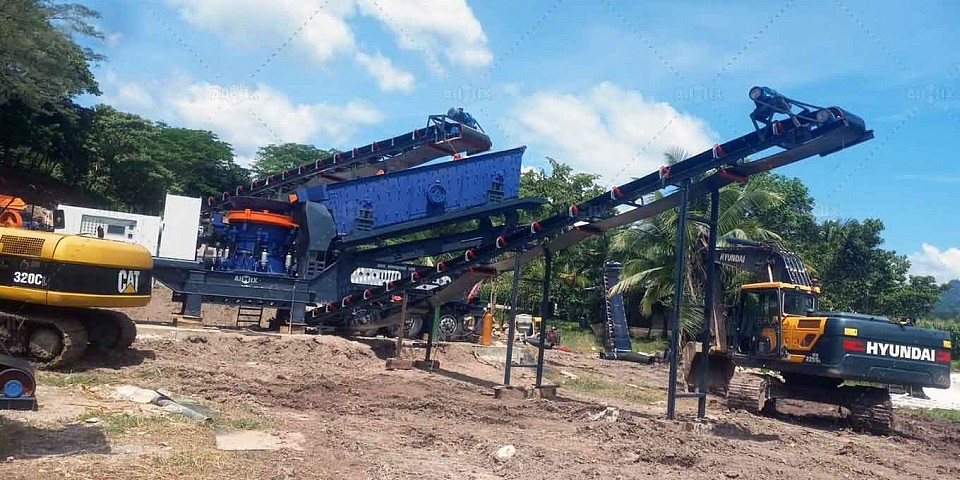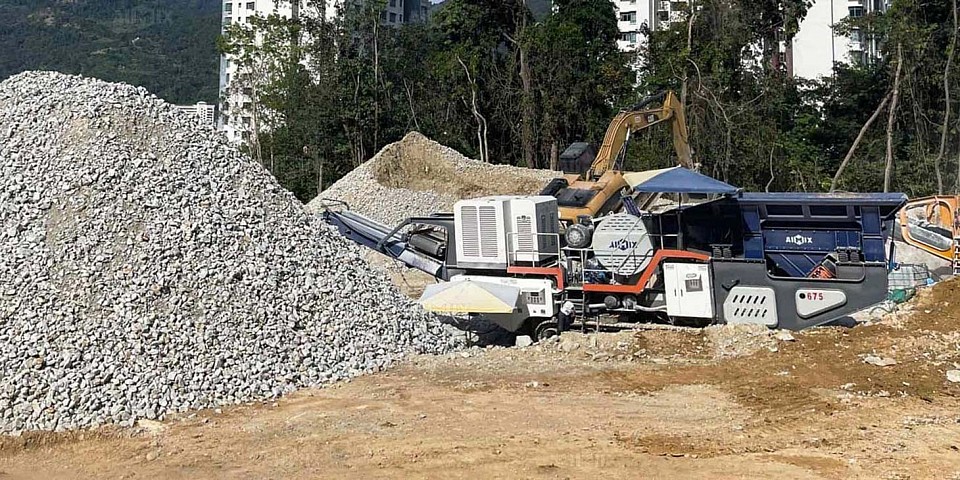Why Granite Crusher Plants Are Essential for High-Quality Construction Aggregates
Granite is a fundamental material in the construction industry, providing the strength and durability needed for everything from highways to high-rise buildings. However, to transform raw granite into high-quality construction aggregates, specialized processing is required. This is where granite crusher machine plants become indispensable. These facilities efficiently break down massive granite boulders into precisely graded aggregates, ensuring consistency, strength, and cost-effectiveness for large-scale construction projects.
Beyond efficiency, these plants contribute to sustainable construction by optimizing material usage and reducing waste. Their role in modern infrastructure development is critical, making them a key investment for quarries and construction firms seeking superior aggregate production.
Ensuring High-Quality Aggregate Production
Precision Crushing for Consistent Aggregate Sizing
Granite’s high compressive strength makes it ideal for construction, but without precise crushing, aggregates can vary in size and quality. Granite crusher plants use advanced crushing technology—including jaw crushers, cone crushers, and impact crushers—to produce well-graded aggregates that meet engineering specifications.
Accurate sizing is essential for applications such as concrete mixing, asphalt production, and road base construction, where even slight variations can impact strength and durability. By using multi-stage crushing processes, these plants ensure uniformity, reducing the risk of weak points in structural applications.
Maximizing Strength and Durability in Construction
The performance of concrete and asphalt relies heavily on the strength of its aggregate components. Poorly processed granite can introduce weaknesses that lead to cracks, structural failures, and maintenance issues over time. Crusher plants eliminate these risks by ensuring proper particle shape, minimizing flaky or elongated aggregates that reduce structural integrity.
By producing well-graded, angular aggregates, these aggregate crusher plants enhance bonding within concrete mixtures, improving load-bearing capacity and long-term durability. This makes them vital for infrastructure projects where material performance is non-negotiable
Enhancing Efficiency and Cost-Effectiveness
Optimized Crushing Processes for Higher Productivity
Traditional aggregate production methods often involve multiple manual processes that are slow and inefficient. Modern granite crusher plants integrate automated crushing, screening, and material handling systems, streamlining operations while significantly increasing output.
High-capacity crushers, paired with efficient conveyors and screening units, enable these plants to process thousands of tons of granite daily, reducing downtime and improving overall profitability. By eliminating bottlenecks in production, they ensure consistent supply to meet growing construction demands.
Lowering Material Costs and Reducing Waste
Sourcing high-quality aggregates from third-party suppliers can be expensive, especially for large-scale projects requiring huge volumes of materials. Investing in a granite crusher plant allows companies to control aggregate production costs, reducing reliance on external suppliers.
Additionally, these plants minimize material waste by ensuring efficient utilization of raw granite. Advanced crushing techniques extract maximum value from each rock, reducing leftover debris and enhancing sustainability. This approach not only improves profitability but also aligns with environmentally responsible construction practices.
Promoting Sustainable Construction Practices
Reducing Environmental Impact Through On-Site Processing
Transporting raw materials from distant quarries increases carbon emissions and logistical expenses. By situating granite rock crusher plant closer to construction sites, companies can significantly cut down on fuel consumption and transportation-related pollution.
Moreover, modern crusher plants are equipped with dust suppression and noise reduction technologies, ensuring compliance with environmental regulations while maintaining workplace safety. These features make them a preferred choice for eco-conscious construction firms.
Supporting Recycling and Circular Economy Initiatives
Many granite crusher plants incorporate aggregate recycling capabilities, allowing construction debris and old concrete to be reprocessed into reusable materials. This reduces reliance on virgin aggregates while contributing to the circular economy in construction.
By repurposing materials, these plants support sustainable building initiatives, ensuring that construction waste is transformed into valuable resources rather than ending up in landfills. This shift towards sustainable aggregate production aligns with global efforts to reduce environmental impact while maintaining infrastructure growth.
Conclusion
Granite crusher plants are the backbone of high-quality aggregate production, ensuring that construction projects receive strong, durable, and precisely graded materials. Their role in enhancing efficiency, reducing costs, and promoting sustainability makes them an essential investment for quarries and construction firms alike.
With advanced crushing technologies, optimized processes, and eco-friendly operations, these plants provide a reliable and cost-effective solution for meeting modern construction demands. Whether for roads, bridges, or high-rise buildings, investing in a granite crusher plant guarantees superior aggregate quality and long-term structural integrity.


